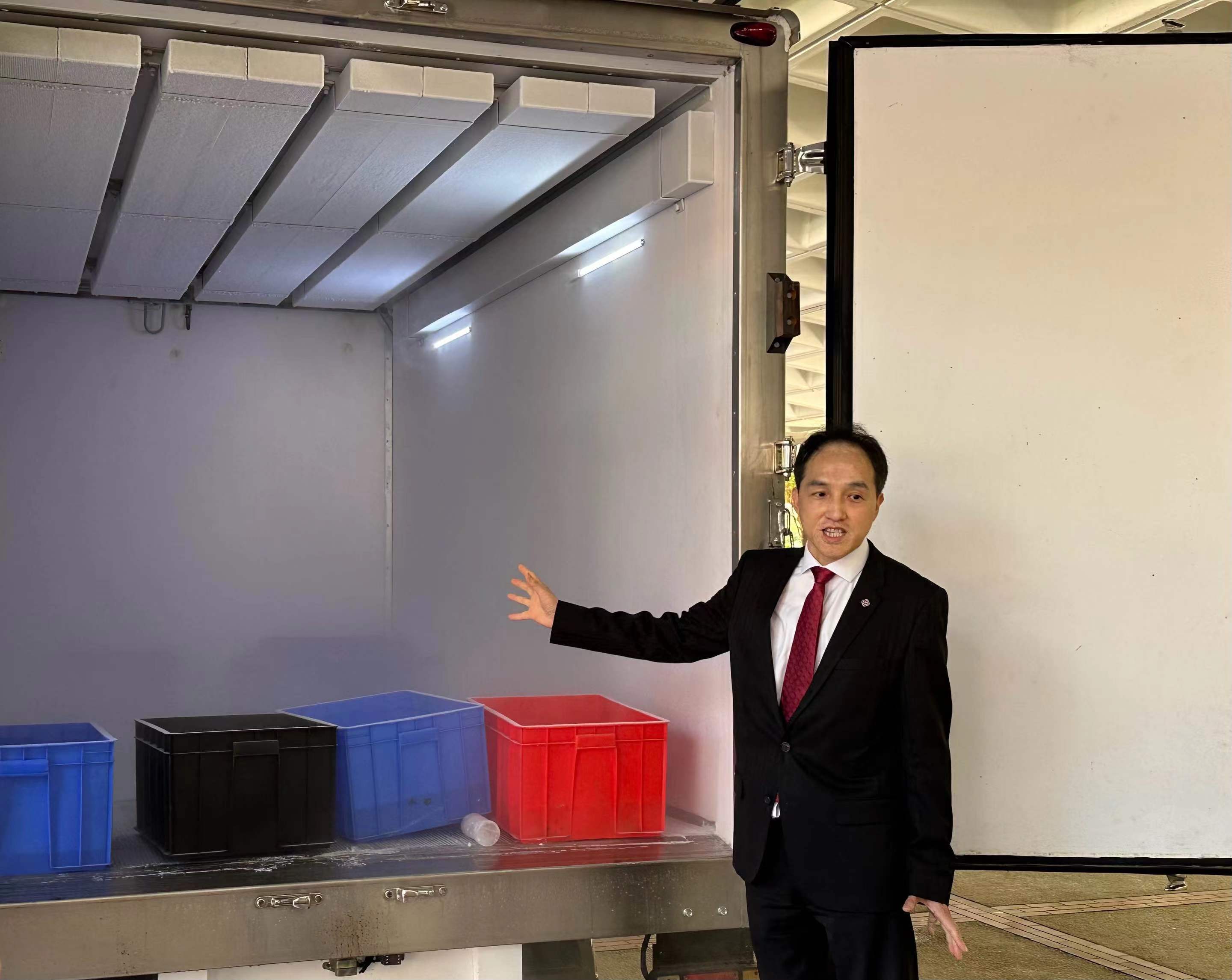
The Hong Kong Polytechnic University (PolyU) has developed a new smart freezer truck, which powers the refrigeration units by solar energy instead of fuel engines and will be available to the market in four months.
Currently, the city has about 5,000 refrigerated trucks, but none of them is solar-powered, according to the university. Such trucks are often used to transport food or vaccines that require low-temperature storage.
The new technology addresses the shortcoming of traditional fuel-driven refrigerated trucks that require the engine to run continuously, even when parked. It also enables these vehicles to be recharged by standard electric vehicle charging infrastructure.
This could significantly help reduce air pollution and support green transportation for carbon neutrality, a research team from PolyU said at a news conference on Thursday.
As the technology is now ready for commercialization, the new type of freezer truck is expected be delivered to the customer within four months, with a price no more than HK$700,000 ($89,640), the research team said.
The team also introduced that apart from recharging its onboard lithium-ion battery by standard EV charging facilities, the new type of trucks can also be connected to other vehicles of the same type for charging and energy exchange purposes.
When the solar energy storage system and battery are fully charged, they can power the freezer system for up to four hours.
The refrigeration system on board the truck can maintain storage temperatures as low as -45 degrees C, addressing the demand for lower temperatures that traditional refrigerated trucks often struggle to meet.
Professor Eric Cheng Ka-wai, from the Department of Electrical and Electronic Engineering at PolyU and the leader of the research team, emphasized the need for new technology, as traditional refrigerated-truck technology has not seen significant advancements in nearly three decades. He said he hopes that this research project can serve as a catalyst for change.
Cheng said that traditional freezer trucks will cause a large amount of additional emissions as their engines need to keep running, even during the loading and unloading of goods.
If each vehicle consumes 1 to 3 liters of diesel per hour, it will produce 2.7 to 8.1 kilograms of carbon dioxide, resulting in annual emissions of approximately 16 metric tons. To offset these carbon emissions, about 760 trees need to be planted.
The scientist called for greater adoption of green transportation technologies in the transport industry, which will contribute to the city’s long-term emission reduction target and helps achieve carbon neutrality.
Wu Xinyu contributed to this story.


